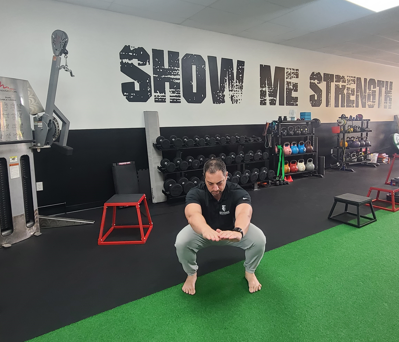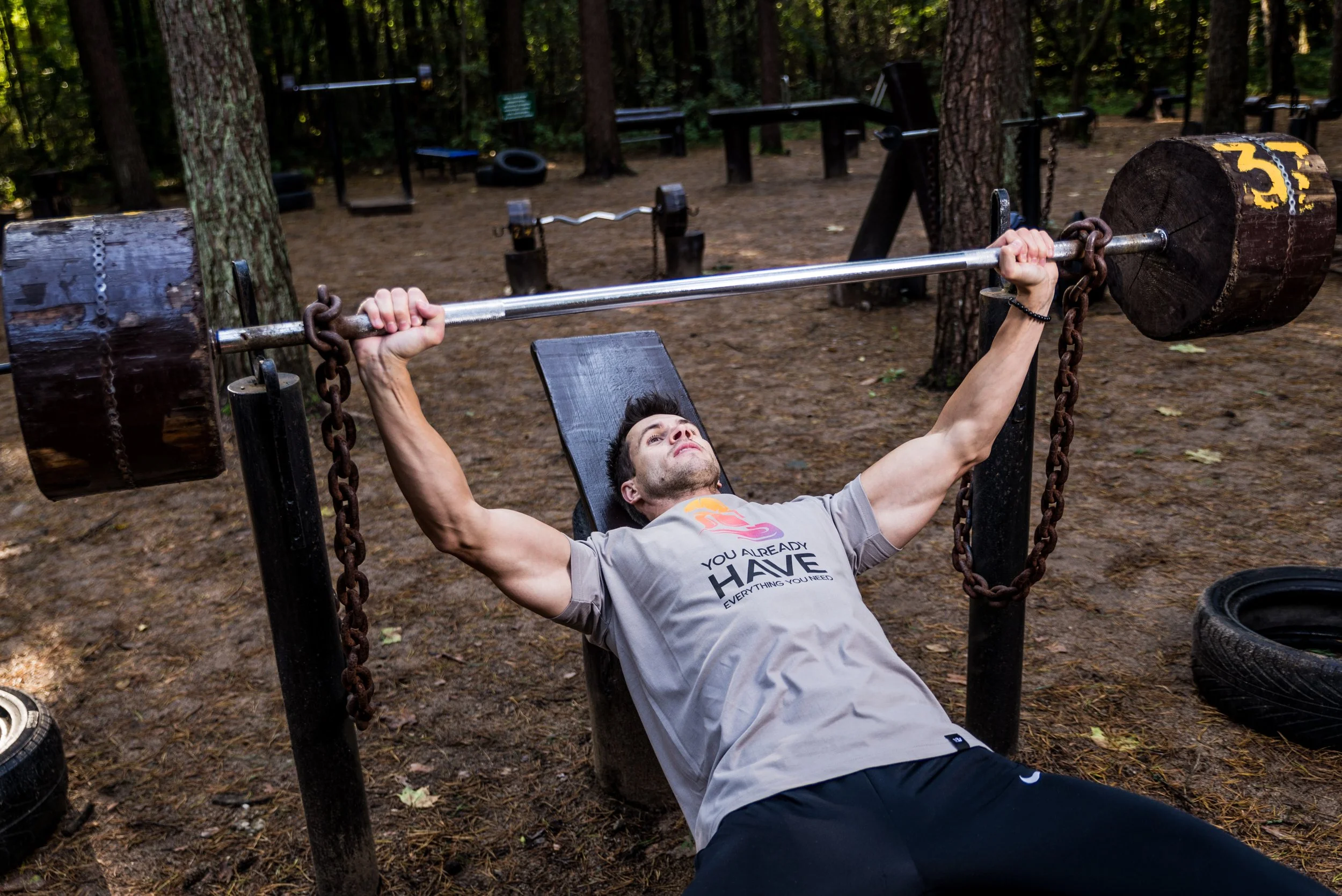Have low back pain when squatting? There can be several reasons for this, but the first thing I check is your ankles. Limited ankle range of motion can alter how you squat and change your center of gravity, placing more strain on your low back.
Read MoreIf you’ve seen marathon runners collapse, it’s because of hyponatremia. Hyponatremia is a state where the concentration of salt in the body is abnormally low. Most are familiar with dehydration and it’s likely more common, however hyponatremia is not talked about quite as much and can be deadly. As discussed in this article, it can cause confusion, nausea, headache, and swelling of the brain which can lead to death if severe enough. Another problem that it has been linked to is osteoporosis.
Read MoreI get a lot of questions about what to do before playing a sport. I rarely get asked about what to do afterwards, which is equally as important. We seem to have forgotten the recovery aspect of using the body. I guess this is not surprising as we are a culture of go, go, go. Coffee, workouts on lunch breaks, more coffee. Constant stimulus. Remember, the body is always seeking homeostasis (equilibrium). When it gets tipped off the scale too often, we get break down. This is where injury occurs. If you want to improve performance, you do want to apply the right amount of stimulus, but then you must allow for recovery to keep injury at bay and to excel. This is called the hormetic effect. So let’s dig into how to approach this.
Read MoreThere are a number of reasons why you may have difficulty achieving a deep squat. Usually it’s your ankles. If you feel like you are going to fall backwards during a squat, it’s your ankles. However, if you feel strain in your groin or inner thigh, it may be your adductors.
Do you get pain in the front of the shoulder with bench press or push ups? The front of the shoulder is a sensitive area and has a lot of nerves that pass through this area. If the head of your humerus presses forward into this bundle, it can cause some pretty nasty pain. What causes this to happen? Lack of shoulder extension.
Read MoreFor years, we’ve been told to avoid salt as it increases blood pressure. There is more to the story than that. After all, there is what is known as “salt sensitive hypertensives”. So why do some people seem to be sensitive to salt, and others are not? Whenever this pattern arises, there is some more digging to be done. Perhaps the link is sugar.
Read MoreAnyone who has experienced a migraine can tell you just how horrific they can be. In high school, I used to get them and it felt like someone was dropping acid on my brain. I would have to lock myself in a room with the shades drawn and suffer through it, often to the point of vomiting. While there are many triggers to migraines, there are some easy dietary changes you can try that may influence it.
Read MoreWe were told it’s all about the right shoes. We were told shoes should give us more stability and have an arch. This was not based on science and has potentially led to harming our feet. Plantar fasciitis is a debilitating, knife-in-the-foot kind of pain. Instead of getting into the right shoes, maybe it’s getting out of the wrong shoes. As you’ll see, the approach to treating plantar fasciitis has been very wrong.
Read MoreA baker’s cyst, or popliteal cyst, is a collection of fluid behind the knee. It is benign, and often asymptomatic. If it gets severe enough, it can cause pressure on the local nerves and vasculature which will provoke pain and stiffness in the knee. It will usually be difficult to fully flex the knee.
Well it’s fantasy football season for me, which means I have my eye on the injury list. Some players get the unfortunate label of being “injury prone” which got me thinking. Is there such a thing? Does it depend on the position, how good the defense is, or is there something going on with the athlete? Is it a strength deficiency, movement error, or dumb luck?
Benign paroxysmal positional vertigo, or BPPV for short, is a debilitating condition that causes severe room-spinning dizziness with changes of head position. If you’ve heard of ‘crystals being loose in the ear’, this is BPPV. It is usually called ‘idiopathic BPPV’, which simply means we don’t know the cause. Head trauma can cause it, but for many patients that deal with this, they haven’t had any trauma. Some recent research has proposed that there is likely a dietary component of this condition in the form of changes in carbohydrate metabolism.
Read MoreWhen it comes to antioxidants, glutathione is the king of the jungle. It boosts metabolism, takes stress off the liver, supports the immune system, and protects the body from oxidative stress. It is composed of 3 amino acids, L-glutamine, glycine, and cysteine. Deficiency can lead to serious problems, but the good news is that we can get it through diet.
Read MoreThe body is pretty good at keeping an electrolyte to water balance, which is important for nerve conduction and muscle contraction. When you drink alcohol, you may notice that your urine turns clear, a sign that this balance has been disturbed. Here is how it works:
Read MoreIs intense exercise good for you? How about red wine? It’s good for the heart, right? How about fasting? Are ice baths good? Deadlifting is bad for your back, especially those Jefferson curls. When you look into the hormetic effect, you’ll see why there is so much confusion around these conversations.
Read MoreThere are many causes of room-spinning dizziness, so it’s important to identify other symptoms to be able to correctly diagnose the cause. Meniere’s disease is characterized by room-spinning dizziness provoked with head position change and can last hours to days. It can also be accompanied with hearing loss, a sense of fullness in the ears, and ringing in the ears.
Read MoreIf you’ve had a recent bacterial or viral infection, and then become dizzy, it may be due to labyrinthitis. The inner ear has a membranous labyrinth which can become inflamed. This will usually cause dizziness, nausea, vomiting, hearing loss, and ringing in the ears. The dizziness will usually be described as room spinning and can last for days.
Read MoreType 3 diabetes is a new (and not quite accepted yet) term to describe the effects that diabetes can have on the brain. It describes the progression of diabetes to Alzheimer’s disease. The correlation between diabetes and Alzheimer’s is well documented, and this blog will aim to describe the proposed mechanism.
Read MoreWhen I have a patient that wants to know what to do about their dizziness, the first thing I want them to do is describe how it feels without saying “dizzy”. Dizzy is a blanket description that can mean anything from lightheaded to room spinning dizziness. It may sound callus, but I always hope for room spinning dizziness.
Read MoreIf you have pain on the outside of your foot, it may be cuboid syndrome. This is often misdiagnosed and is not well understood, but we do know that it is common following an inversion sprain, or “rolling your ankle.
Read MoreNo. Stretching rarely solves a problem. We hear this all the time as, “you gotta do your stretches”. Or I have someone ask: “I have back pain, what stretches should I be doing”?




















